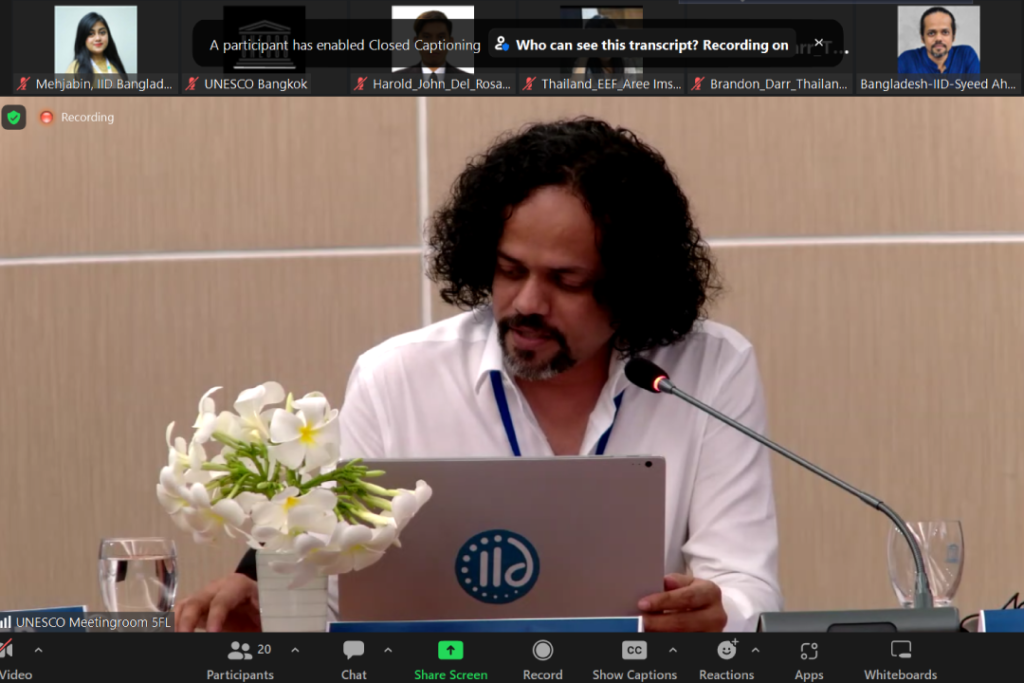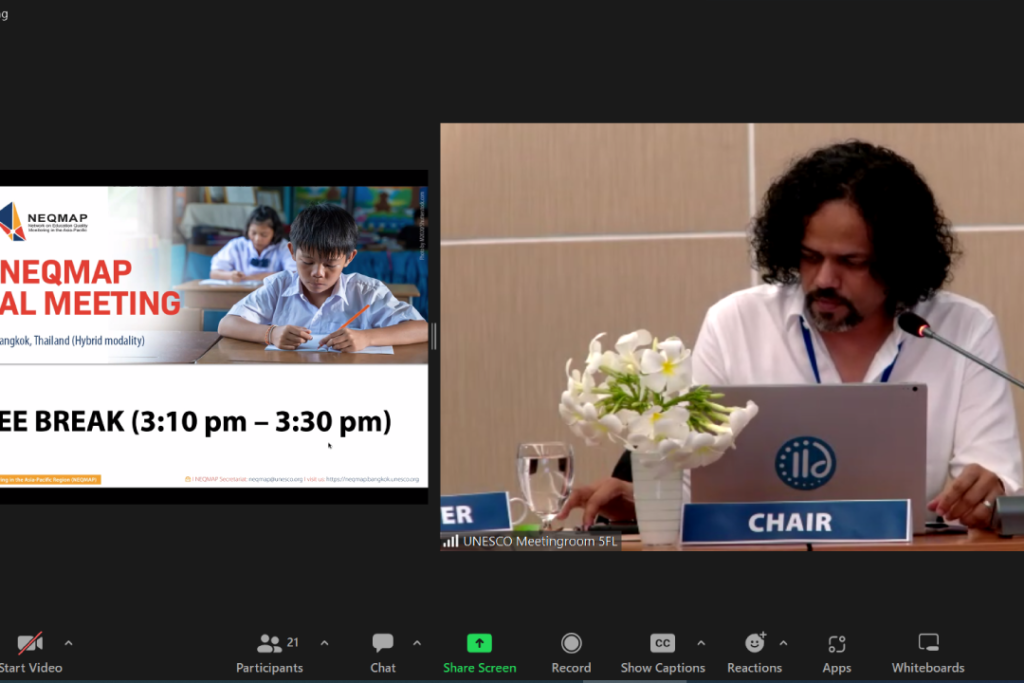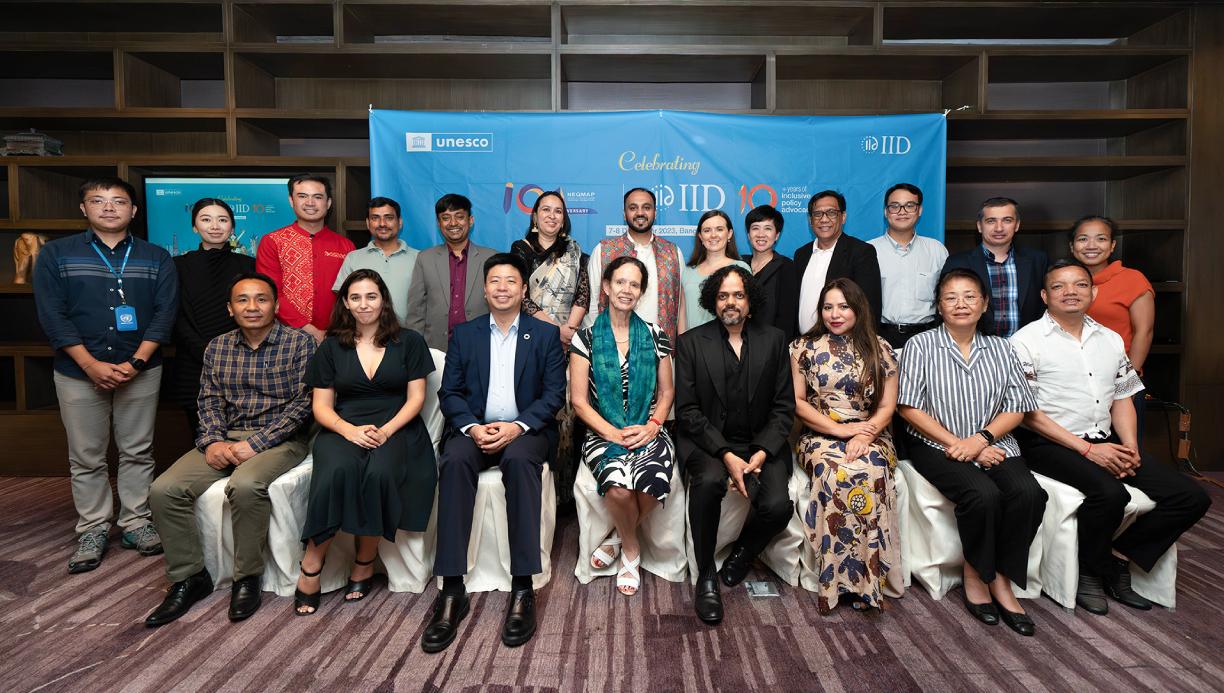IID presented the preliminary findings from its two ongoing studies on education system resilience at the 2022 Annual Meeting of the Network on Education Quality Monitoring in the Asia Pacific (NEQMAP). The conference took place on December 15 and 16 at UNESCO Bangkok, Thailand.
In the “Knowledge Sharing—Large Scale Assessment” session, the CEO of IID, Syeed Ahamed, who is also a steering group member of NEQMAP, presented the findings from a panel study on the learning loss of children in Bangladesh due to the pandemic and the findings from a village level pilot study on the situation of the education system’s resilience at the community level.
The panel study was conducted on 1,200 households in 60 villages in Bangladesh using the International Common Assessment of Numeracy (ICAN) and the ASER literacy tools. From the survey, it can be seen that due to the long break in education due to the COVID-19 pandemic, the capacity of students regarding number recognition, number operation, and word problem tasks has decreased. The similar impact can be seen in terms of children’s reading skills as well. On the other hand, the village pilot study on education system resilience showed the perceptions of parents, teachers, students, CSOs, and government representatives on children’s learning loss and the current education situation. The findings from the study indicate that the access barrier to technology and digital devices decreased the learning progression of the children, despite government initiatives with online classes. At the same time, the prolonged school closure resulted in children’s inattention, forgetfulness, and aversion to attending school.
During this conference Mr. Ahamed also chaired a session on identifying priority areas of work for NEQMAP 2023.
The goal of the conference was to plan for the coming year by reflecting on UNESCO’s global education platform, NEQMAP’s first decade of work, and exploring how to advance its work and role in promoting better monitoring of learning in Asia-Pacific.





